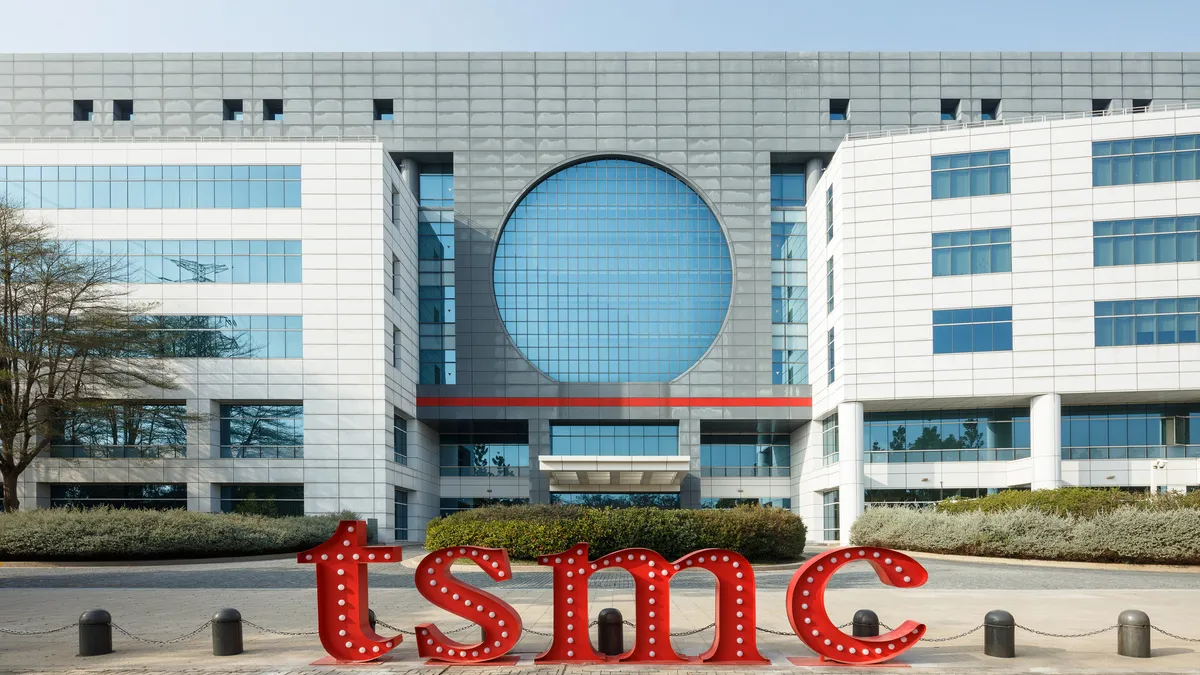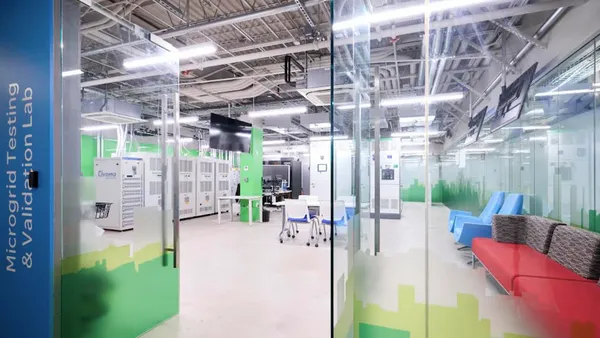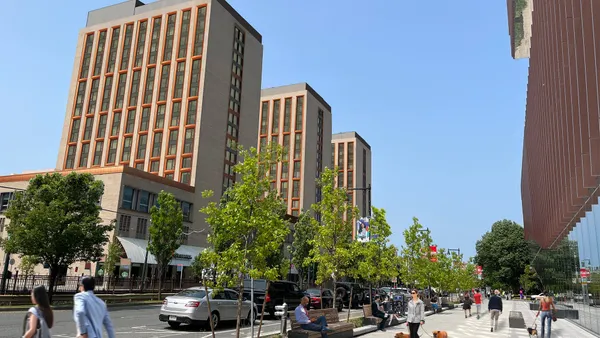Dive Brief:
- The White House granted chip giant Taiwan Semiconductor Manufacturing Company $6.6 billion in CHIPS and Science Act funding, the Commerce Department announced Monday.
- TSMC will also build a third fabrication plant in Phoenix, where it is already in the midst of constructing two semiconductor facilities, investing more than $65 billion total.
- The third fab will produce chips using 2nm or more advanced processes, with production slated to begin by the end of the decade, joining the other fabs scheduled to open in 2025 and 2028.
Dive Insight:
TSMC's infusion of capital is one of the largest private investments in U.S. history, representing the largest foreign direct investment in a greenfield project in the country to date.
At full capacity, the three factories are expected to manufacture tens of millions of advanced chips to power products like 5G/6G smartphones, autonomous vehicles and AI datacenter servers.
The three projects are expected to create approximately 6,000 direct manufacturing jobs and more than 20,000 construction jobs. Fourteen direct TSMC suppliers have also announced plans to construct or expand plants in Arizona or elsewhere in the U.S.
On top of the $6.6 billion in CHIPS funding, TSMC is up for $5 billion in loans as part of the agreement. The chip giant also plans to apply for the Treasury Department's investment tax credits of up to 25% of the qualified capital expenditure on the Arizona projects.
"The leading-edge semiconductors that will be made here in Arizona are foundational to the technology that will define global economic and national security in the 21st century, including AI and high-performance computing," Commerce Secretary Gina Raimondo said in a statement.
TSMC is the second major chipmaker to receive billions of dollars in CHIPS funding as the Biden administration begins more aggressively doling out money. Intel was granted $8.5 billion in direct funds late last month, part of a package that included up to $11 billion in loans for its semiconductor projects in Arizona, New Mexico, Ohio and Oregon.
The projects are key aspects of the Biden administration's promise to manufacture 20% of the world's most advanced chips in the U.S. by 2030.
But while the projects are meant to show the possibilities of reenergized U.S. manufacturing prowess, they also highlight one of the biggest challenges the country faces in building out the industry —finding qualified labor.
TSMC, for example, previously delayed the opening date of the first fab from late 2024 to 2025 due to a lack of available specialized labor. That announcement, however, sparked outcry from local labor unions, who blasted the company for attempting to bring in foreign workers.
The chipmaker struck a deal with the Arizona Building and Construction Trades Council in January regarding labor, including a commitment from TSMC to prioritize hiring domestic workers and for the union to recruit a sufficient number of skilled workers to fulfill the project's manpower needs.
The new CHIPS funding attempts to address this issue, with $50 million in funding for semiconductor and construction workforce development. TSMC will also use a registered apprenticeship program to meet a 15% apprenticeship utilization rate on the Phoenix construction sites.
















